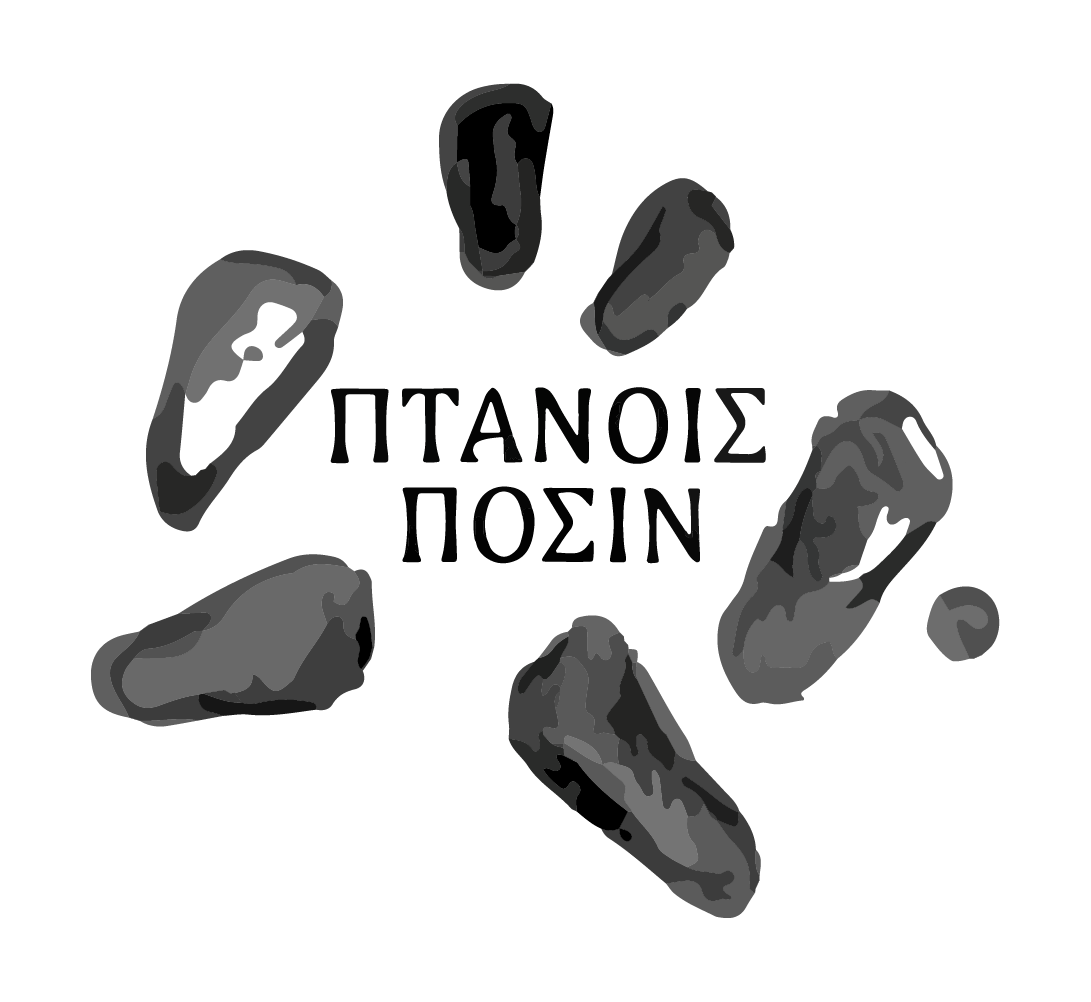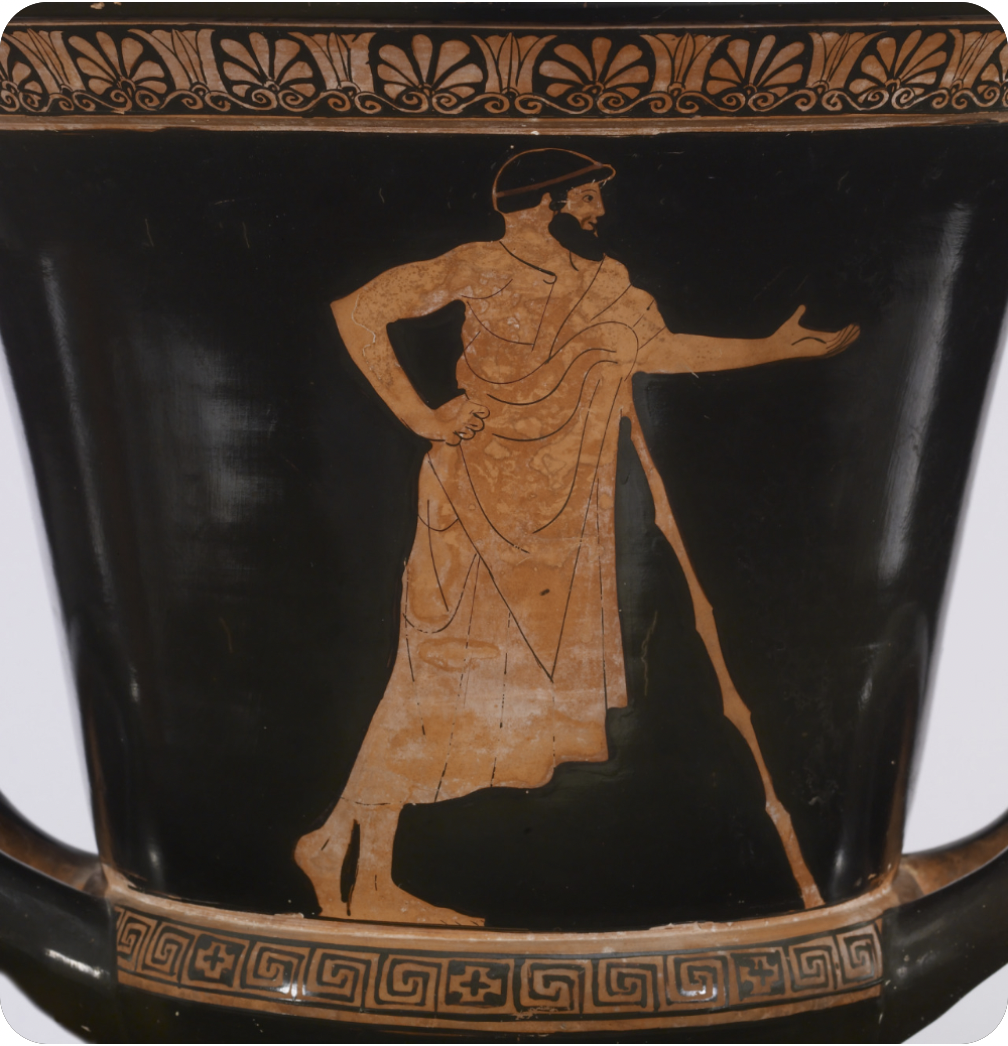IG XI 4, 572
Amphiklos of Chios, the son of Kallistratos: epic poet and hieromnemon
Edition:
– – – – – – – – -νη καὶ πρὸς
πόλεις καλῶς καὶ ἐπιφανῶς ἐν τῆι
ποιήσει κεκόσμηκεν καὶ τὸ ἱερὸν καὶ
Δηλίους· δεδόχθαι τῶι δήμωι· ἐπαι-
5 νέσαι Ἄμφικλον Καλλιστράτου
Χῖον καὶ στεφανῶσαι αὐτὸν δάφνης
στεφάνωι ἐν τῶι ἀγῶνι <τῶι> μουσικῶι τοῖς
Ἀπολλωνίοις καὶ ἀναγορεῦσαι τὸν ἱε-
ροκήρυκα διότι στεφανοῖ ὁ δῆμος
10 ὁ Δηλίων Ἄμφικλον Καλλιστρά-
του Χῖον εὐσεβείας ἕνεκεν τῆς
εἰς τὸ ἱερὸν καὶ εὐνοίας ἧς ἔχων
διατελεῖ Δηλίοις· εἶναι δὲ αὐ-
τὸν καὶ πρόξενον Δηλίων καὶ εὐερ-
15 γέτην καὶ ὑπάρχειν αὐτῶι καὶ ἐκ-
γόνοις προεδρίαν ἐν τοῖς ἀγῶ-
σιν καὶ πρόσοδον πρὸς τὴν βουλὴν
καὶ τὸν δῆμον πρώτωι μετὰ τὰ ἱερά·
ὑπάρχειν δὲ αὐτῶι καὶ γῆς καὶ οἰ-
20 κίας ἔγκτησιν καὶ τὰ ἄλλα πάντα
ὅσαπερ καὶ τοῖς ἄλλοις προξένοις
καὶ εὐεργέταις ὑπάρχει τοῦ ἱεροῦ
καὶ Δηλίων· ἀναγράψαι δὲ τόδε τὸ
ψήφισμα τὴμ μὲν βουλὴν εἰς τὸ βου-
25 λευτήριον, τοὺς δὲ ἱεροποιοὺς εἰς
τὸ ἱ[ερ]όν.
Translations (en):
“… and towards the cities, in a fine and distinguished manner through his poetry he brought lustre to the temple and to the Delians: it has been resolved by the demos to praise Amphiklos of Chios the son of Kallistratos, and to crown him with a wreath of laurel in the musical contest at the Apollonia; and the sacred herald shall announce that the people of Delos crowns Amphiklos of Chios, the son of Kallistratos, on account of his piety towards the temple and the goodwill that he continually shows toward the Delians; he shall have the status of both a proxenos and a benefactor of the Delians; he and his descendants shall be granted privileged seating at the contests, and access to the council and the people, second only to sacred matters; he shall have the right to own both land and buildings, and all the other privileges that are granted to other proxenoi and benefactors of the sanctuary and the Delians. The council shall inscribe this decree in the council-hall, and the hieropoioi shall inscribe it in the temple.”
[translation from http://www.attalus.org/docs/sig1/s447.html, slightly modified]
Translations (it):
“… e benignamente verso le città, e pubblicamente ha celebrato in poesia il santuario e i Delii: è sembrato bene all’assemblea di lodare Amphiklos figlio di Kallistratos di Chio e incoronarlo con una corona d’alloro nel corso dell’agone musicale degli Apollonia e che l’araldo sacro annunci pubblicamente che il popolo dei Delii incorona Amphiklos di Chio figlio di Kallistratos per la pietas nei riguardi del santuario e la benevolenza che continua a serbare verso i Delii; che egli sia prosseno dei Delii ed evergete e sia lui sia i suoi eredi abbiano la proedria negli agoni e il diritto di comparire per primi di fronte al consiglio e all’assemblea, dopo gli affari sacri; che egli abbia il possesso di terra e casa e tutti gli altri vantaggi che sono riservati agli altri prosseni ed evergeti del santuario e dei Delii. Il consiglio faccia incidere questo decreto presso il bouleuterion e gli hieropoioi presso il santuario.”
Commentary (en):
Amphiklos from Chios was a renowned artist and statesman whose activity is attested in Delos and Delphi in the middle of the third century BC. He performed on the sacred island gracing the sanctuary and the people of Delos (A, ll. 1-4) and we can follow the steps of this ποιητὰς ἐπῶν also in Delphi (FD III 3, 217). There, he was elected proxenos and worked as hieromnemon, keeping alive the good
relations between the Aetolians and his birthplace.
Commentary (it):
Amphiklos di Chio era un artista e uomo di stato rinomato, la cui attività è attestata a Delfi e a Delo a metà del III secolo a.C. Si esibì sull’isola sacra onorando il santuario e il popolo di Delo (A, 11 1-4) e siamo in grado di ricostruire le tappe di questo ποιητὰς ἐπῶν anche a Delfi (FD III 3, 217). Stando a una lista dei prosseni (Syll3 444C, 1. 4) che permette di integrare il testo del decreto, agì in qualità di ieromnemone, alimentando buone relazioni diplomatiche tra gli Etoli e la sua città natale.


